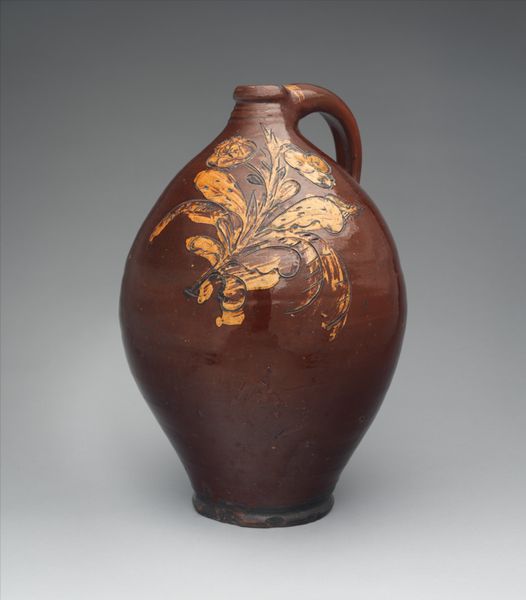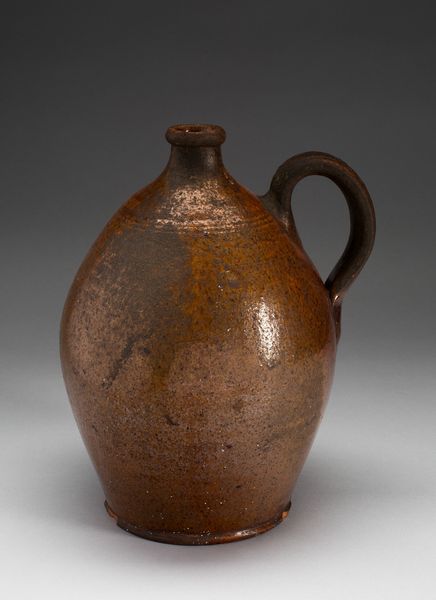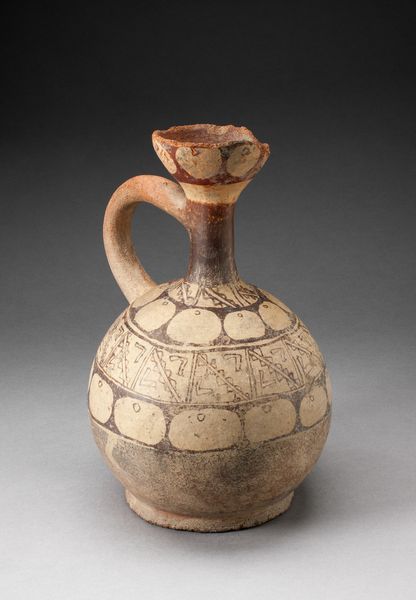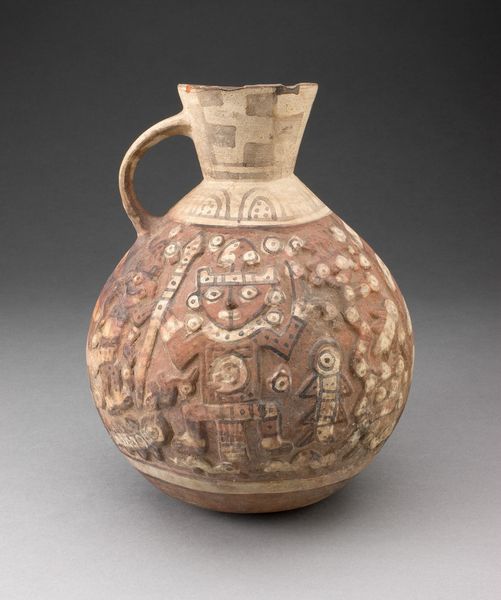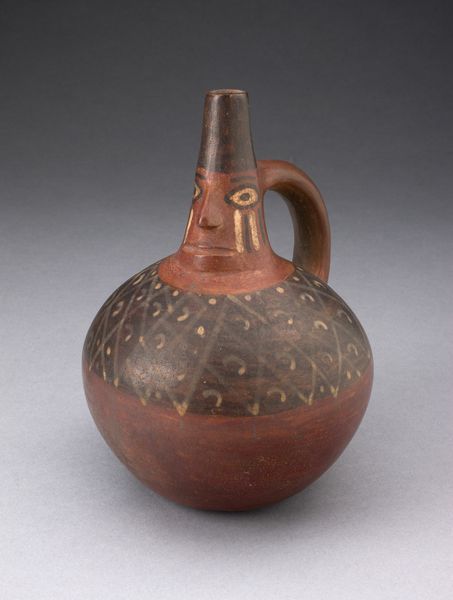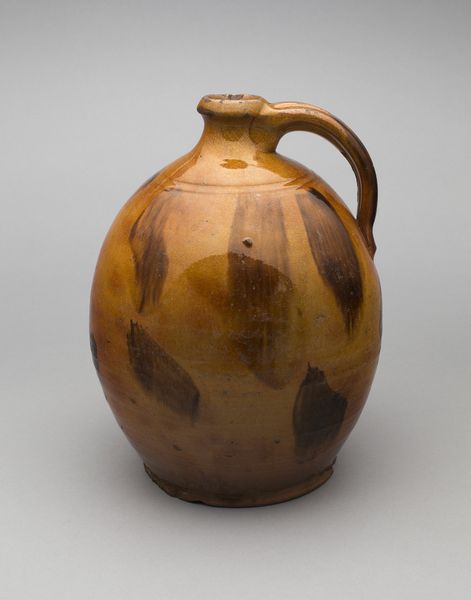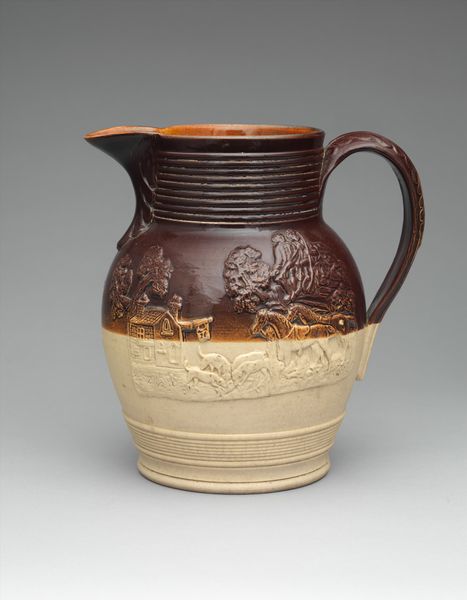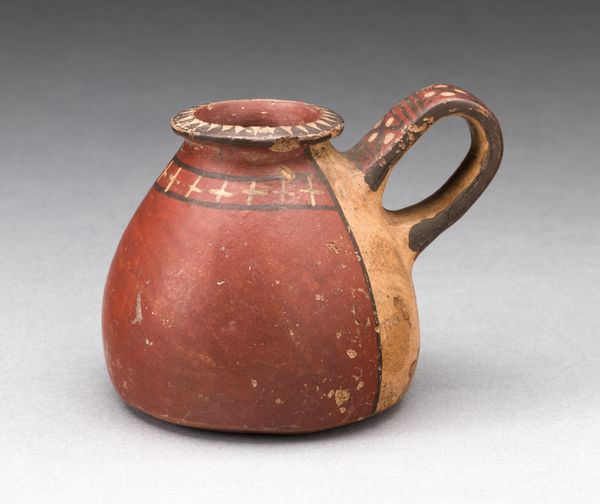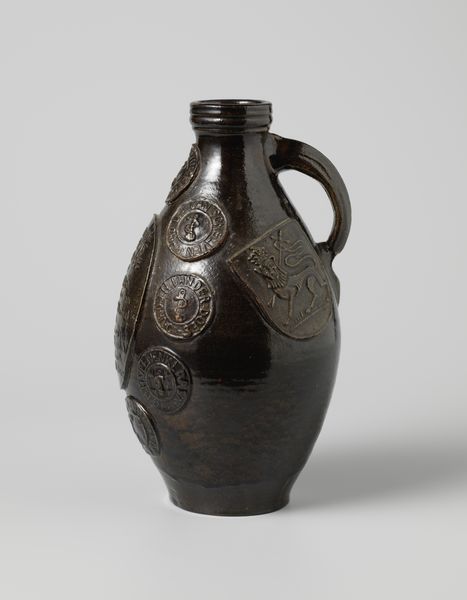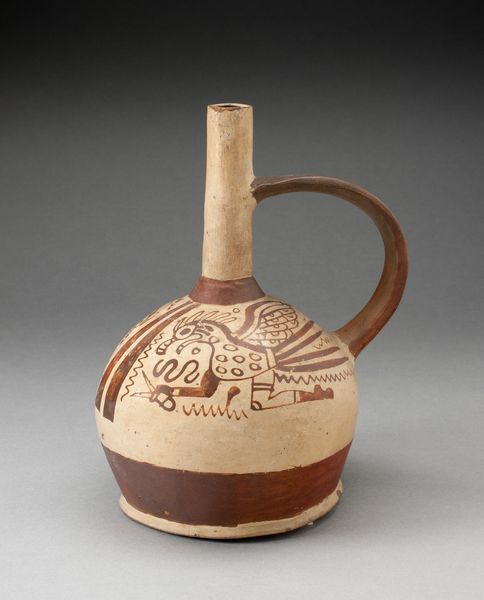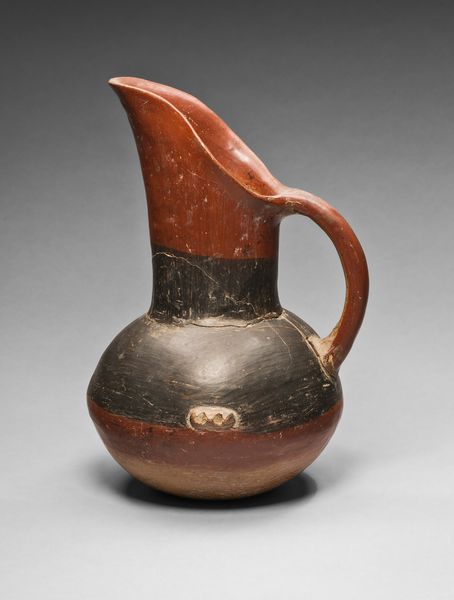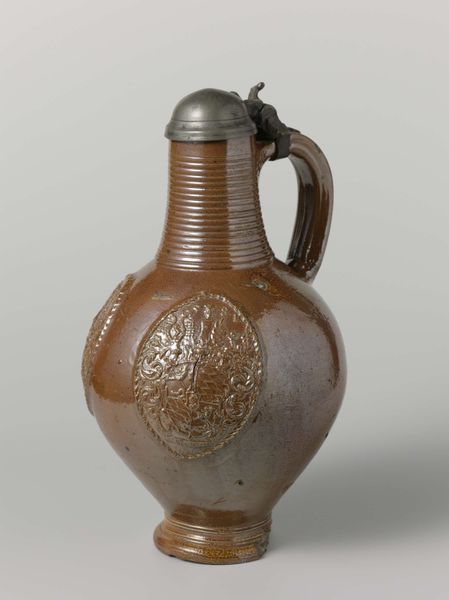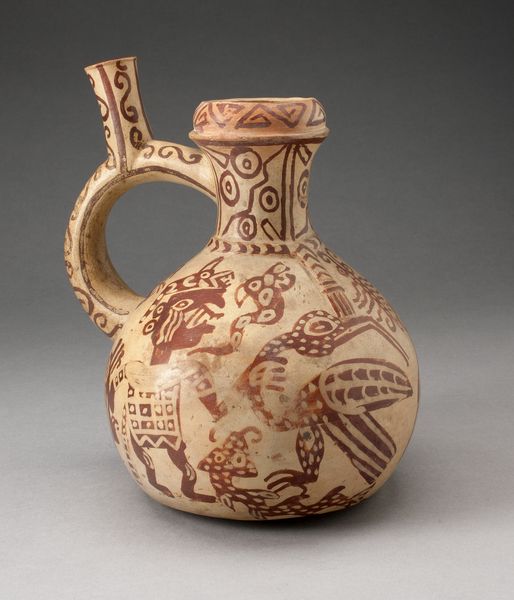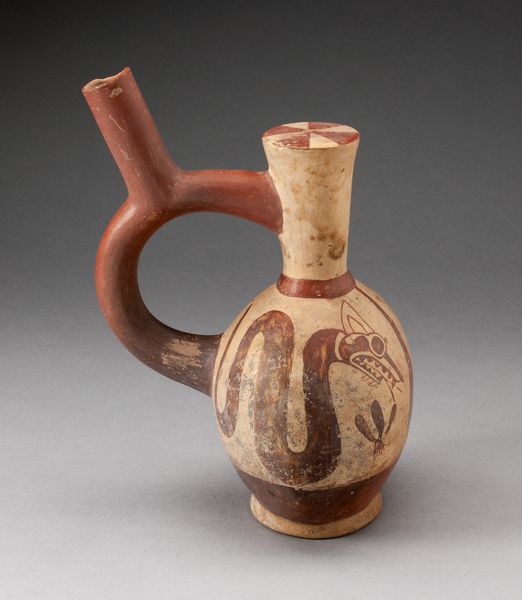
ceramic, earthenware, sculpture
#
ceramic
#
figuration
#
earthenware
#
sculpture
#
ceramic
#
indigenous-americas
Dimensions: 25.1 × 20 cm (9 7/8 × 7 7/8 in.)
Copyright: Public Domain
This is a ceramic stirrup-spout vessel, created by the Moche people of ancient Peru. The Moche flourished from about 200 to 850 AD, developing a sophisticated culture in the arid coastal region. The vessel’s form and decoration offer insights into Moche beliefs and social structures. Note the stirrup-shaped handle—a distinctive Moche design, which allowed for even pouring and reduced evaporation. Its surface is adorned with stylized depictions of animals, plants, and geometric patterns. These images likely had symbolic meanings, perhaps related to fertility, ritual practices, or ancestral narratives. Moche society was highly stratified, with powerful rulers, priests, and warriors. The imagery on vessels like this one often reflects the concerns and values of the elite, reinforcing their authority and worldview. The Moche produced ceramics in great numbers, using them not only as functional objects but also as a medium for expressing their cultural identity and transmitting their beliefs across generations. Consider how art could serve as a form of cultural memory.
Comments
No comments
Be the first to comment and join the conversation on the ultimate creative platform.
